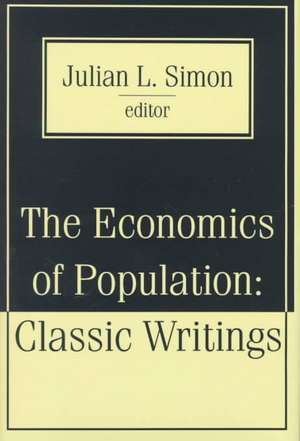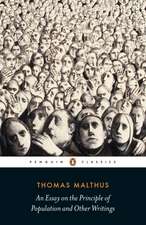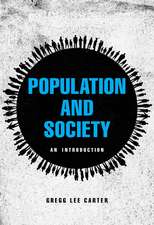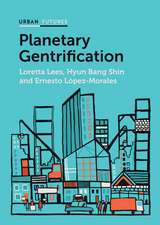The Economics of Population: Key Classic Writings
Autor Julian Simonen Limba Engleză Hardback – 1997
The Economics of Population, edited by Julian L. Simon, traces the history of population economics. This is a century-spanning collection of essays from foremost influential economic theorists, arranged to illustrate thought development and its numerous reversals. The first section includes essays from Joseph J. Spengler, John Graunt, William Petty, Thomas R. Malthus, William Godwin, and David Ricardo. Theorists such as Alexander Everett, William Peterson, Simon Gray, Henry C. Carey, John Stuart Mill, Friedrich Engels, Henry George, and Charles Fourier are the subject of the volume's second section. Finally, Simon covers the effect of population density and cities on productivity, and the effect of density on agricultural practices and natural resources. Essays from this section include John Maynard Keynes' "Is Britain Overpopulated?" and "The Economic Consequences of Peace" as well as selections from Lionel Robbins, George Simmel, and Alvin H. Hansen.
Simon's long-term focus reflects the evolution of population movements. He does not restrict himself to writings that have been important in the historical chain of intellectual influence. Rather, he guides us to key works which shed light on the intellectual history of population economics. Simon includes some essays that, while greatly influential, can also be seen as fundamentally wrong in light of later work. As such, The Economics of Population will be of great value to political economists, sociologists of knowledge, and historians of ideas.
| Toate formatele și edițiile | Preț | Express |
|---|---|---|
| Paperback (1) | 489.26 lei 43-57 zile | |
| Taylor & Francis – 16 apr 2018 | 489.26 lei 43-57 zile | |
| Hardback (1) | 1005.01 lei 43-57 zile | |
| Taylor & Francis – 1997 | 1005.01 lei 43-57 zile |
Preț: 1005.01 lei
Preț vechi: 1225.61 lei
-18% Nou
Puncte Express: 1508
Preț estimativ în valută:
192.33€ • 199.58$ • 160.76£
192.33€ • 199.58$ • 160.76£
Carte tipărită la comandă
Livrare economică 17-31 martie
Preluare comenzi: 021 569.72.76
Specificații
ISBN-13: 9781560003076
ISBN-10: 1560003073
Pagini: 250
Dimensiuni: 152 x 229 x 23 mm
Greutate: 0.59 kg
Ediția:1
Editura: Taylor & Francis
Colecția Routledge
Locul publicării:Oxford, United Kingdom
ISBN-10: 1560003073
Pagini: 250
Dimensiuni: 152 x 229 x 23 mm
Greutate: 0.59 kg
Ediția:1
Editura: Taylor & Francis
Colecția Routledge
Locul publicării:Oxford, United Kingdom
Cuprins
1: The Classical Setting; 1: History of Population Theories; 2: Natural and Political Observations; 3: Another Essay in Political Arithmetick; 4: Enquiry Concerning Political Justice; 5: An Essay on the Principle of Population as it Affects the Future Improvement of Society (First Edition); 6: An Essay on the Principle of Population, or A View of Its Past and Present Effects on Human Happiness (Second and Fifth Editions); 7: Of Population; 8: The Principles of Political Economy and Taxation; 2: The Second Wave; 9: New Ideas on Population with Remarks on the Theories of Malthus and Godwin; 10: Summary of the Differences between Malthus and Gray; 11: The Happiness of States, or An Inquiry Concerning Population; 12: Principles of Political Economy, Vol. 1; 13: Principles of Political Economy; 14: On Malthus; 15: Progress and Poverty; 16: Design for Utopia; 3: Twentieth-Century Classicals on Consequences; 17: Population and Unemployment; 18: The Changed Outlook in Regard to Population; 19: Notes on Some Probable Consequences of the Advent of a Stationary Population in Great Britain 1; 20: Some Economic Consequences of a Declining Population; 21: Economic Progress and Declining Population Growth; 22: The Number of Members as Determining the Sociological Form of the Group; 4: Natural Resources; 23: The Coal Question; 24: The Economic Consequences of the Peace; 25: The Isolated State; 5: The Determinants of Population Growth and Density; 26: An Essay on the Principle of Population as it Affects the Future Improvement of Society (First Edition); 27: An Essay on the Principle of Population, or A View of Its Past and Present Effects on Human Happiness (Second Edition)
Descriere
The economics of population has a long and controversial history as well as an exciting present











